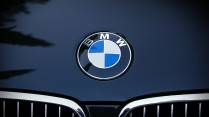Automakers Embrace Hybrids Amid Industry's Electric Vehicle Transition Challenges
By Dabbie Davis
Dec 08, 2023 11:22 PM EST

As the sales of all-electric vehicles (EVs) have been slower than expected, big automakers are shifting their attention to hybrid cars. They are thinking again about how hybrid cars and trucks might be able to meet customer needs whilst getting avoid the expensive fines that come with following government rules on fuel economy and emissions.
Hybrids Over EVs
As of November of this year, 8.3% of U.S. car sales, or about 1.2 million units, were hybrids. This shows how popular they have become. Comparing this share to last year's overall sales numbers shows that it has grown by 2.8%. Automakers are trying to find a middle ground between cars that run on gas and cars that run on electricity alone. CNBC got these percentages on its report.
They're following these steps because the market demands it and because of regulatory pressure. Many automakers are reconsidering hybrid automobiles and trucks because to consumer demand and the need to avoid costly federal fuel economy and pollution penalties.
The automobile industry has focused heavily on electric cars (EVs) in recent years, yet this change appears to contradict it. Many automakers have invested heavily in EVs, and the Biden administration has actively promoted their quick adoption on U.S. highways.
Furthermore, the revival of hybrid vehicles, which mix internal combustion engines with EV battery technology, may offer a short-term solution for the automobile industry. Lowering fuel use and pollutants progressively introduces consumers to car electrification.
CNBC cited Morgan Stanley 's report that Toyota, Honda, Hyundai, and Kia are responsible for 90% of hybrid vehicle sales in the United States.
READ MORE: Jeep Retires its Most Affordable Renegade, Paving the Way for EVs
Reasons for Joining the Shift
While automakers promote their stylish new electric vehicles (EVs), a significant number of consumers transitioning from gasoline-powered cars are choosing hybrids as an intermediate step in their journey towards electrification.
The average cost of an EV at $50,000 remains prohibitively high for numerous potential buyers, and impending regulations may limit eligibility for federal tax credits. Additionally, the insufficient availability of charging infrastructure continues to be a noteworthy concern.
According to Axios, Hybrid vehicles, on the other hand, offer excellent fuel efficiency and come in at an average price below $40 ,000, making them an appealing compromise for many consumers. Consequently, some automakers are reconsidering their product portfolios, at least in the near future, to accommodate this shifting consumer preference.
Toyota, a hybrid leader, is increasing its commitment.The new Prius, available in hybrid and plug-in hybrid models, is drawing notice for its beautiful design. Furthermore, the forthcoming iteration of the Camry, the top-selling sedan in the United States, will exclusively come in a hybrid version, mirroring the approach taken with the Toyota Sienna minivan.
General Motors is exploring adding hybrid models to its lineup despite its strong commitment to EVs. Ford, on the other hand, is prioritizing hybrids and plug-in hybrids more prominently in its strategy.
Currently, it ranks among the top three best-selling hybrid brands, trailing only Toyota and Honda. Ford experienced a notable 75.2% increase in hybrid sales in November, driven primarily by the hybrid versions of the Maverick and F-150 pickups. Recognizing the consumer demand for a wider range of options, Ford is planning to expand its hybrid offerings substantially in the coming years.
RELATED ARTICLE: Ford Vehicles Sales Drop by 0.5% this November as EV Sales Rises
Copyright @ MOTORTIMES, All rights reserved. Do not reproduce without permission.








